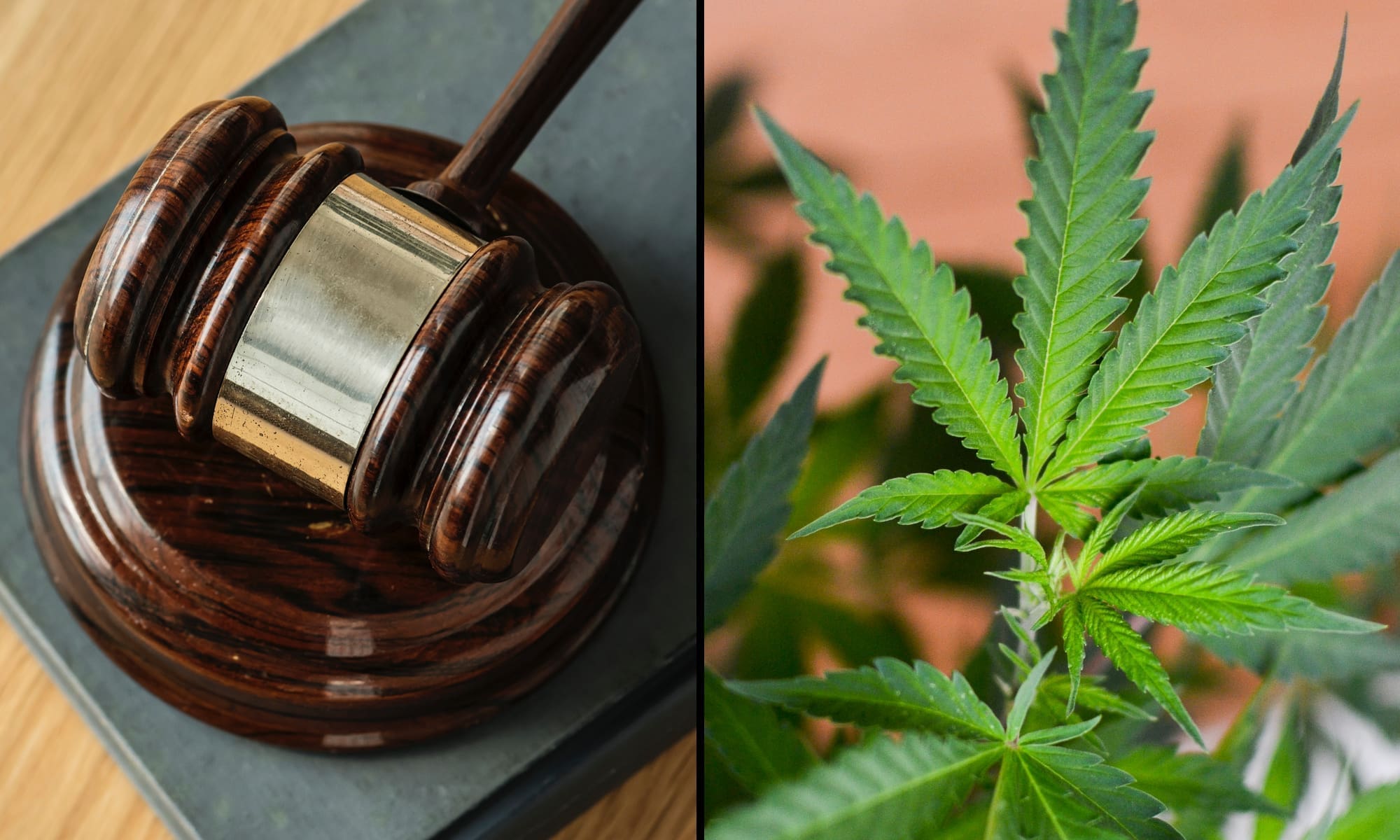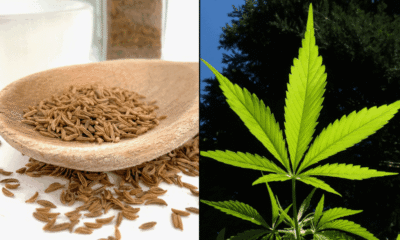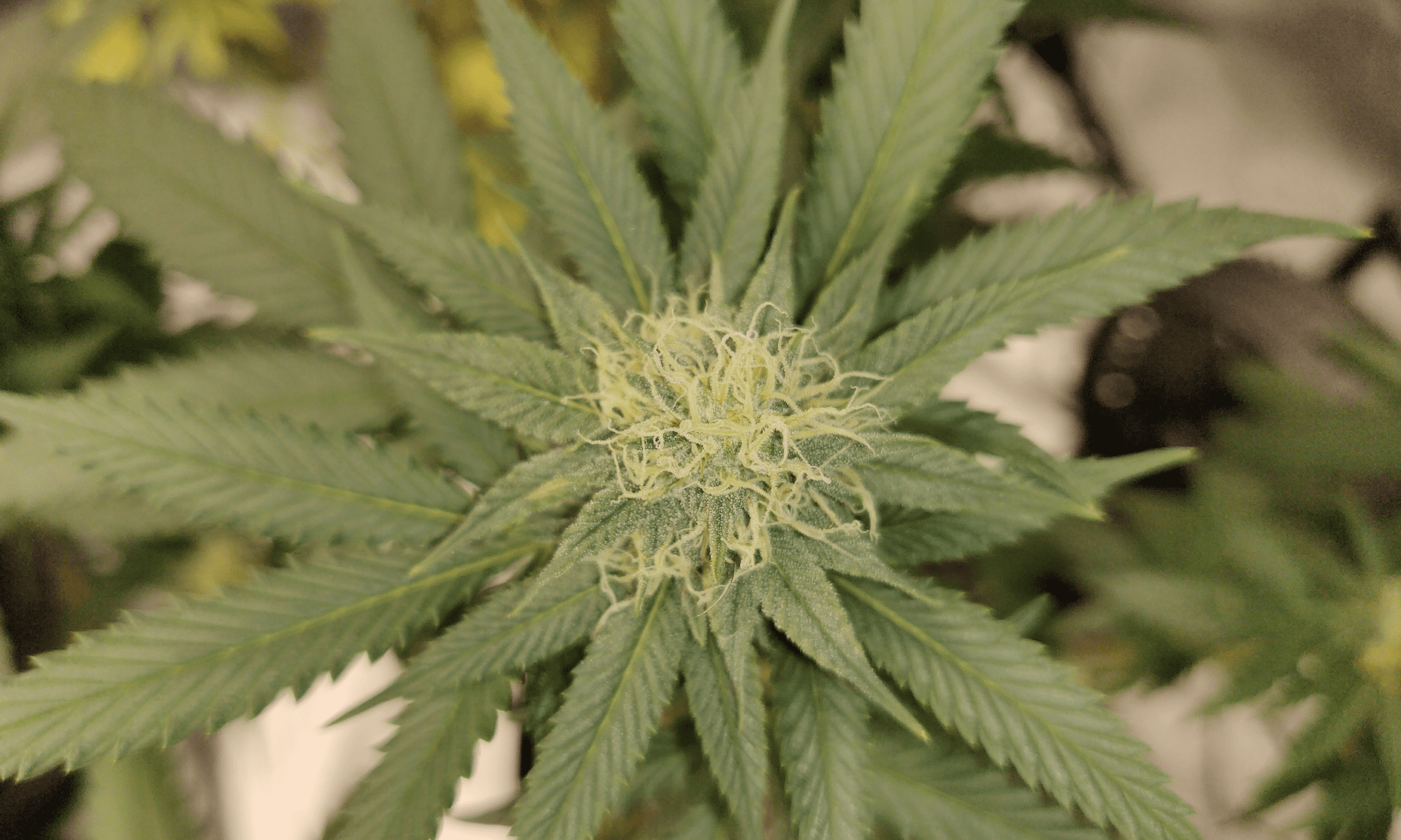featured
Florida Marijuana Legalization Campaign Sues State Over Alleged ‘Unlawful’ Attempt To Invalidate 200,000 Signatures For 2026 Ballot Initiative
Published
1 day agoon

A Florida campaign that’s working to put a marijuana legalization initiative on the 2026 ballot is suing the state for allegedly taking “unlawful” steps to force the invalidation of about 200,000 voter signatures it has submitted.
Smart & Safe Florida filed the lawsuit against Secretary of State Cord Byrd and Leon County Supervisor of Elections Mark Earley in Florida’s Second Judicial Circuit last week, contesting the secretary’s claims that signature verification criteria render invalid any petitions that didn’t include the full text of the initiative.
Such a rule was “not contemplated by the statute” on ballot requirements, the campaign said. Despite that, however, the secretary earlier this month “directed all County Supervisors of Elections to invalidate upwards of 200,000 of Plaintiff’s petitions that the Supervisors had previously verified pursuant to the express statutory criteria.”
A campaign spokesperson told Marijuana Moment on Monday that the lawsuit is meant to “require the Secretary of State to follow Florida law and to prevent the State from denying the Florida voters who signed the petitions to have their voices heard.”
“We are asking the court to enforce Florida law, it’s really that simple,” they said. “The State is wrongly attempting to change the rules after-the-fact and deny these registered voters their voice in the process.”
The lawsuit, first reported by Politico, notes that the secretary’s decision to direct the invalidation of petitions comes “less than four months before the February 1, 2026, deadline for ballot certification.”
The secretary’s office initially sent a cease-and-desist letter to Smart & Safe Florida in March, advising the campaign about its interpretation of the rules around including the full text of the proposed initiative on its signature petitions, “without pointing to any statute, regulation, or order” to support its enforceability.
“While the Secretary has the delegated authority to prescribe the style and requirements of a citizen initiative form, he has no authority to create and impose additional verification criteria not contemplated by the Legislature,” the suit says. “No Florida statute…expressly or impliedly requires that the Full Text Form be provided or displayed to a voter prior to signing a petition.”
Regardless of legal questions surrounding the revised signature gathering criteria, the campaign did voluntarily comply with the secretary’s directive and began including the full text on petitions. But more than six months after the initial contact, Division of Elections Director Maria Matthews on October 3 emailed all of the state’s 63 county supervisors “directing them to invalidate any Smart & Safe petition” that voters signed before the full initiative text was added.
“While the Secretary may wish that voters have the opportunity to read the Full Text Form before signing the petition, there is no statutory or regulatory requirement that a voter read the full text to have their petition verified and counted,” the lawsuit says. “The Secretary’s Directive is inaccurate, unlawful, ultra vires, and void.”
“Because of the Secretary’s Directive, Smart & Safe is in doubt as to its rights and responsibilities as the sponsor of the Proposed Amendment,” it added.
The campaign is asking the court to affirm the lack of legal authority for the secretary to “impose additional verification criteria” for petition signatures, enjoin the state from “invalidating otherwise valid petitions” under the secretary’s directive, restore the validation of petitions that were allegedly unlawfully invalidated and provide any other relief deemed necessary.
Beyond the legal challenge to the signature criteria, there’s another curious wrinkle in how the state has so far navigated this initiative, with the secretary of state apparently missing a statutorily imposed deadline to submit the measure to the Florida Supreme Court for a legal review after it met an initial threshold of 220,016 valid signatures.
According to the state Division of Elections, Smart & Safe Florida has collected valid 662,543 signatures at last count. It needs 880,062 verified signatures by February 1, 2026 to make the ballot. In June, the state affirmed that the campaign collected enough for the initiative to trigger the fiscal and judicial review.
This is the campaign’s second run at the ballot. They successfully secured ballot placement for a 2024 version of the initiative–and a majority did vote to pass it, but not enough to meet the state’s steep 60 percent threshold to approve a constitutional amendment.
With approximately 200,000 petitions now potentially at risk of invalidation, and limited time to make up the difference, the campaign may be at jeopardy if the court upholds the state’s authority to impose new signature criteria.
In the background of this lawsuit, a federal judge in August delivered a win to Smart & Safe Florida—granting “complete relief” from provisions of a law Gov. Ron DeSantis (R) signed to impose other serious restrictions on signature gathering.
While the law DeSantis signed in May wasn’t directly targeted at the cannabis initiative, there’s been concern among supporters that it could jeopardize an already complex and costly process to collect enough signatures to make the ballot. That’s because it would block non-residents and non-citizens from collecting signatures for ballot measures.
In March, meanwhile, two Democratic members of Congress representing Florida asked the federal government to investigate what they described as “potentially unlawful diversion” of millions in state Medicaid funds via a group with ties to DeSantis. The money was used to fight against a citizen ballot initiative, vehemently opposed by the governor, that would have legalized marijuana for adults.
The lawmakers’ letter followed allegations that a $10 million donation from a state legal settlement was improperly made to the Hope Florida Foundation, which later sent the money to two political nonprofits, which in turn sent $8.5 million to a campaign opposing Amendment 3.
A grand jury is now reportedly taking testimony on that matter ahead of potential prosecutions.
The governor said in February that the newest marijuana legalization measure is in “big time trouble” with the state Supreme Court, predicting it will be blocked from going before voters next year.
“There’s a lot of different perspectives on on marijuana,” DeSantis said. “It should not be in our Constitution. If you feel strongly about it, you have elections for the legislature. Go back candidates that you believe will be able to deliver what your vision is on that.”
“But when you put these things in the Constitution—and I think, I mean, the way they wrote, there’s all kinds of things going on in here. I think it’s going to have big time trouble getting through the Florida Supreme Court,” he said.
The latest initiative was filed with the secretary of state’s office just months after the initial version failed during the November 2024 election—despite an endorsement from President Donald Trump.
Smart & Safe Florida is hoping the revised version will succeed in 2026. The campaign—which in the last election cycle received tens of millions of dollars from cannabis industry stakeholders, principally the multi-state operator Trulieve—incorporated certain changes into the new version that seem responsive to criticism opponents raised during the 2024 push.
For example, it now specifically states that the “smoking and vaping of marijuana in any public place is prohibited.”Another section asserts that the legislature would need to approve rules dealing with the “regulation of the time, place, and manner of the public consumption of marijuana.”
—
Marijuana Moment is tracking hundreds of cannabis, psychedelics and drug policy bills in state legislatures and Congress this year. Patreon supporters pledging at least $25/month get access to our interactive maps, charts and hearing calendar so they don’t miss any developments.![]()
Learn more about our marijuana bill tracker and become a supporter on Patreon to get access.
—
Last year, the governor accurately predicted that the 2024 cannabis measure from the campaign would survive a legal challenge from the state attorney general. It’s not entirely clear why he feels this version would face a different outcome.
While there’s uncertainty around how the state’s highest court will navigate the measure, a poll released in February showed overwhelming bipartisan voter support for the reform—with 67 percent of Florida voters backing legalization, including 82 percent of Democrats, 66 percent of independents and 55 percent of Republicans.
However, the results conflict with another recent poll from the Florida Chamber of Commerce, a proactive opponent of legalization, that found majority support for the reform among likely voter (53 percent) but not enough to be enacted under the 60 percent requirement.
Another poll of Florida Republican voters showed just 40 percent of that demographic said they’d vote in favor of the legalization proposal.
Separately, a Florida GOP senator claimed recently that the legalization campaign “tricked” Trump into supporting the 2024 measure by misleading him and the general public about key provisions.
Ahead of the election, Trump said last September that he felt Amendment 3 was “going to be very good” for the state.
Before making the comments, Trump met with the CEO of Trulieve, Kim Rivers, as well as with a GOP state senator who is in favor of the reform.
Meanwhile, Florida medical marijuana officials are actively revoking the registrations of patients and caregivers with drug-related criminal records. The policy is part of broad budget legislation signed into law earlier this year by DeSantis. The provisions in question direct the state Department of Health (DOH) to cancel registrations of medical marijuana patients and caregivers if they’re convicted of—or plead guilty or no contest to—criminal drug charges.
Read the Smart & Safe Florida campaign’s lawsuit against the state over petition criteria below:

Author: mscannabiz.com
MScannaBIZ for all you Mississippi Cannabis News and Information.
You may like
-


Millennials Are Spending Big on Luxury Travel
-


Ohio Lawmakers Advance Bill To Scale Back Voter-Approved Marijuana Law And Impose Hemp Regulations
-


Data Confirms Cannabis Is Safer Than Alcohol
-


American Council of Cannabis Medicine Unveils Major Industry Initiative to Expand Medical Cannabis Access
-


Scientists Develop New Class Of CBD Using A Common Kitchen Spice—Not Cannabis
-


Evidence About Burning Mouth Syndrome And Cannabinoids

Millennials redefine indulgence as experiences, not things — airlines adapt as Millennials are spending big on luxury travel.
Luxury isn’t what it used to be. For Millennials, adults in their 30s and early 40s, living luxuriously means swapping pricey gadgets, cars, and designer clothes for something else. Something their parents did later in life. Millennials are spending bing on luxury travel experiences. From Napa Valley wine tours to boutique ski resorts in Colorado, Millennials are redefining what it means to “treat yourself.” And it’s not just happening in the U.S.—they’re doing it worldwide.
RELATED: Gen Z Is Ditching Relationship Labels While Millennials
In the U.S., states like California, New York, Florida, and Texas are seeing a boom in experiential travel. Millennials are putting more of their disposable income into curated trips, wellness retreats, and boutique hotels—sometimes choosing these experiences over traditional material luxuries.
Globally, destinations are feeling the impact too. European Millennials are flocking to Portugal’s Douro Valley for vineyard tours and Italy’s Amalfi Coast for boutique stays. In Asia, young travelers are splurging on private island resorts in the Maldives and eco-lodges in Bali. Even in Africa, safari trips in South Africa and Kenya are attracting Millennials looking for immersive, Instagram-worthy adventures.

Why the shift? Millennials came of age during tough economic times—from the Great Recession to rising housing costs and inflation. Many have decided memories beat things which depreciate quickly. Social media also plays a role: a picture-perfect vacation is now a status symbol in itself.
Millennials favor “quiet luxury”—understated but high-quality experiences. They prefer boutique hotels, local cuisine, private tours, and eco-friendly resorts over flashy, mass-market offerings. Whether it’s a wine tasting in California or a wellness retreat in Thailand, this generation seeks personalization, authenticity, and sustainability.
Airlines are taking notice. Carriers like Delta, Air France, and Emirates are rolling out perks aimed squarely at Millennials. Think flexible booking, wellness-focused amenities, upgraded seating options, and loyalty programs rewarding experiences rather than just miles. Boutique airline partnerships with resorts, curated city guides, and even “Instagram-ready” lounges cater to this generation’s desire for travel that’s luxurious but meaningful. Some airlines are even offering subscription-style models or bundled travel packages appealing to Millennials who prioritize experiences over possessions.
RELATED: Cannabis Is Way Better And Safer Than A Honey Pack
This trend shows Millennials define luxury differently: it’s freedom, experiences, and personal growth—not what you own. Many are spending on travel instead of expensive cars, big homes, or designer brands. And as Millennials hit peak earning years, the global luxury travel market is set to grow even more.
For Millennials, luxury isn’t just a price tag—it’s an experience you remember, share, and treasure.
Top Millennial Luxury Travel Hot Spots
- California, USA: Wine country, coastal retreats, and wellness resorts.
- Portugal: Vineyard stays and scenic surf towns.
- Bali, Indonesia: Eco-lodges and spiritual wellness retreats.
- Italy: Amalfi Coast villas and food-driven cultural tours.
- Kenya & South Africa: Luxe safaris with sustainability built in.
- Iceland: Adventure and geothermal spas in minimalist luxury.
Airlines Leaning In
- Delta Air Lines: Expanding premium cabin and wellness-focused menus for “mindful flyers.”
- Emirates: Instagram-worthy lounges and inflight luxury appealing to Millennials’ visual storytelling.
- Air France & KLM: Personalized travel guides, flexible booking, and eco-conscious options.
- JetBlue Mint: Affordable luxury with craft cocktails and small-brand partnerships.

Author: mscannabiz.com
MScannaBIZ for all you Mississippi Cannabis News and Information.
featured
Ohio Lawmakers Advance Bill To Scale Back Voter-Approved Marijuana Law And Impose Hemp Regulations
Published
4 hours agoon
October 21, 2025
Ohio House lawmakers on Tuesday approved an amended Senate-passed bill that would make significant changes to the state’s voter-approved marijuana legalization law while incorporating a series of regulations for hemp that are meant to align the two sectors of the cannabis industry.
Members of the House Judiciary Committee agreed to changes to the measure from Sen. Stephen Huffman (R) before advancing it to other panels and an expected floor vote on Wednesday. But while certain controversial provisions of the bill as passed by the Senate were scaled back, it would still make major changes to the marijuana law voters approved in 2023.
The measure will now go to the Rules Committee before being re-referred to the Finance Committee, after which point it’s expected to receive floor action.
“We’ve had years of testimony. We’ve heard from marijuana advocates, hemp advocates, public health advocates and everyone in between,” Rep. Brian Stewart (R) said. “We are generally going to take the feedback from the hemp industry, which said, ‘Treat us like marijuana,” he said. “They will have the same potency limitations, the same advertising restrictions, the same restrictions on quantities, serving size and how they operate.”
Rep. Jamie Callender (R), who has led the charge on marijuana policy in the House, said ahead of the vote that the revised bill would be “very thoughtful and targeted.” But at the hearing, he added that the legislation is “not perfect” or what he would have drafted.
“It’s a bill that can get passed that will help us implement some of the elements of Issue 2 that have been held up and give clarity to the rulemakers on some of the points that are outstanding,” he said, referring to the voter-approved legalization measure. “It also clarifies and cements a few of the gains that were gained over the years: Sharing, home grow, no new prosecutions [and] the taxes going to the local governments.”
“We’ve got more work to do. We are not done.”
Under the amended legislation, stores and breweries would be permitted to sell hemp-derived THC beverages, with new advertising restrictions meant to prevent appealing to youth. Products for on-site consumption would be limited to 5 mg of THC, but adults could buy take-home drinks containing up to 10 mg. More potent drinks could also be manufactured in Ohio, but only for sales to people outside the state.
There would be a new $1.20 tax per gallon on hemp beverages created by the bill, and Stewart said it will “create a pathway for legal, regulated, licensed hemp dispensaries.”
“Nobody has ever voted to allow functionally equivalent products to marijuana—hemp products—to be sold in 6,000 plus gas stations and grocery stores around the state,” he said. “And so with this bill, we would say that you can buy intoxicating hemp products in licensed hemp dispensaries. We are not going to have intoxicating hemp available to any establishment that admits persons who are under the age of 21.”
Advocates remain concerned about other marijuana-related provisions of the Senate bill that were left intact. That includes the elimination of language in the current voter-approved law providing anti-discrimination protections for people who lawfully use cannabis and the recriminalization of possessing marijuana from any source that isn’t a state-licensed dispensary.
“It is profoundly disappointing to see the House Judiciary Committee advance legislation to roll back cannabis freedoms and protections that Ohio voters overwhelmingly approved,” Karen O’Keefe, director of states policies at the Marijuana Policy Project (MPP), told Marijuana Moment. “The committee substitute would open the door to harassment and interrogation of cannabis consumers by criminalizing any cannabis that wasn’t home grown or obtained from an Ohio retailer. It would also remove protections that prevent responsible cannabis consumers from losing their children, professions, and even their lives for cannabis use.”
The legislation also bans smoking cannabis at outdoor public locations such as bar patios, and it allows landlords to prohibit vaping marijuana at rented homes.
In short, the proposal “continues to gut the voter-enacted law,” O’Keefe said in a letter to Judiciary Committee members ahead of Tuesday’s hearing.
“Please reject this erosion of freedoms enacted by 57 percent of voters,” she said, adding that the legislation as amended “will lead to interrogations over the source of cannabis and arrests over conduct voters legalized.”
“The bill also allows families to be ripped apart, professions lost, and lives destroyed for responsible cannabis use—by repealing voter-enacted protections to prevent such suffering,” she said. “Please remove all language amending Issue 2, or at least slow the process down. Voters and stakeholders deserve a chance to review language before their law is gutted.”
Unlike the Senate-passed version of the legislation, the House substitute will send tax revenue from cannabis sales to local governments.
Rep. Desiree Tims (D) said at the hearing that she still has “concerns about the criminal justice implications” of the substitute bill, inquiring of the sponsor about expungement provisions.
“My number one fear is that we are in the process of legalizing something where a select few will become very, very wealthy, while people continue to suffer from past activities–whether recreational or otherwise—utilizing the very same products that we are allowing people to make a profit off,” she said.
Stewart said the bill does contain a pathway for people with prior cannabis possession convictions to have their records expunged if they proactively petition the courts, and that process would be “expedited,” albeit not automated as is in the case in certain other legal marijuana states.
Members of the committee separately approved an amendment from Rep. Josh Williams (R) to revise the expungement process for eligible past cases by making it incumbent on the state to proactively defend any decision to deny a person’s request to seal their record.
Another lawmaker raised a question about disparate penalties for the sale of hemp or marijuana to minors compared to alcohol, and Stewart replied that the Republican caucus is “comfortable with the penalty being higher for marijuana and intoxicating hemp.”
“I think that’ll probably be a source of continued debate as Ohioans kind of get used to a fairly substantial new landscape here,” he said. “Rightly or wrongly, I still think there is a view that we’re a little more concerned about selling kids weed than Miller Lite.”
Tuesday’s hearing comes weeks after DeWine issued emergency rules prohibiting the sale of intoxicating hemp products for 90 days, with instructions to the legislature to consider permanent regulations. Last week, however, a county judge enjoined the state from enforcing that policy in response to a legal challenge.
“Frankly, the legislature had not taken action,” Gov. Mike DeWine (R) said in an interview published this week. “I’m still hopeful that the legislature will come in and actually take action.”
House Speaker Matt Huffman (R) commented recently on the relative lack of progress in advancing marijuana and hemp legislation since voters approved legalization at the ballot in 2023, noting substantive divides within the Republican caucus.
There are “folks who believe that marijuana should be legalized and regulated,” others “who believe that the hemp products should be on equal standing with everything that happened in the initiated statute and then “folks, like me, who are prohibitionists, who don’t think it should be legalized at all and it should be rare,” he said.
“I would say the prohibitionists have largely lost this discussion.”
—
Marijuana Moment is tracking hundreds of cannabis, psychedelics and drug policy bills in state legislatures and Congress this year. Patreon supporters pledging at least $25/month get access to our interactive maps, charts and hearing calendar so they don’t miss any developments.![]()
Learn more about our marijuana bill tracker and become a supporter on Patreon to get access.
—
Meanwhile, last month, the Ohio Department of Cannabis Control (DCC) filed new proposed rules to build upon the state’s marijuana legalization law, laying out plans to update regulations on labeling and packaging requirements.
The proposal came weeks after Ohio medical and adult-use marijuana sales officially crossed $3 billion, data from the state Department of Commerce (DOC) shows.
The state sold about $703 million in recreational cannabis in the law’s first year of implementation, according to DCC data.
In March, a survey of 38 municipalities by the Ohio State University’s (OSU) Moritz College of Law found that local leaders were “unequivocally opposed” to earlier proposals that would have stripped the planned funding.
Meanwhile in Ohio, adults as of June are able to buy more than double the amount of marijuana than they were under previous limits, with state officials determining that the market can sustainably supply both medical cannabis patients and adult consumers.
The governor in March separately announced his desire to reallocate marijuana tax revenue to support police training, local jails and behavioral health services. He said funding police training was a top priority, even if that wasn’t included in what voters passed in 2023.
Ohio’s Senate president has also pushed back against criticism of the Senate bill, claiming the legislation does not disrespect the will of the electorate and would have little impact on products available in stores.
Photo courtesy of Mike Latimer.

Author: mscannabiz.com
MScannaBIZ for all you Mississippi Cannabis News and Information.

Cannabis is a hot topic on Capital Hill and online – but what are the facts? Data confirms a key issue about the plant.
The medical community has come out and said cannabis has medical benefits. Despite this, some older congress members are concerned about the harmful effects of the plant. But data confirms cannabis is safer than alcohol. The overall burden of disease and injury from alcohol far exceeds those of marijuana. For example Australia, alcohol accounted for 3.2% of the disease and injury, while marijuana accounted for only 0.2%. The effects are clear and 88% of the public believe it should be legal in some form.
RELATED: Science Says Medical Marijuana Improves Quality Of Life
The debate over the safety of marijuana versus alcohol has been ongoing for years, with evidence demonstrating marijuana poses significantly fewer health and safety risks than alcohol. Data supports the marijuana is safer as an alternative to alcohol by examining health impacts, addiction rates, and societal effects. Already Gen Z sees it has a better lifestyle choice by choice to be California sober.
Alcohol use is strongly linked to violent crimes, with estimates suggesting that 25-30% of violent crimes in the U.S. are alcohol-related. In contrast, marijuana use is not commonly associated with violence or crime

Here is more information about the difference between cannabis and marijuana.
- Mortality Rates: Alcohol use is associated with tens of thousands of deaths annually in the United States, primarily due to chronic alcohol use and alcohol-related accidents. In contrast, there have been no documented cases of fatal marijuana overdoses.
- Health-Related Costs: The health-related costs for alcohol consumers are substantially higher than those for marijuana users. A study found that the annual cost per alcohol user is approximately $165, compared to just $20 per marijuana user.
- Neurological Effects: Alcohol consumption is known to cause permanent brain damage, whereas marijuana has been found to have neuroprotective properties.This suggests marijuana may not only be less harmful but can be beneficial in certain neurological contexts.
- Addiction Potential: Marijuana is less addictive than alcohol. While some individuals may develop dependence on marijuana, it is less severe and less common than alcohol dependence. Alcohol use can lead to severe physical withdrawal symptoms, which are not observed with marijuana.
- Dependence and Tolerance: Alcohol users are more likely to develop tolerance and dependence compared to marijuana users. This indicates that alcohol poses a greater risk of long-term addiction issues.
In addition, alcohol increases risk-taking behavior, contributing to accidents and injuries, whereas marijuana does not seem to increase such behavior. This difference is crucial in understanding the societal impact of these substances.
Data overwhelmingly supports the conclusion that marijuana is safer than alcohol in terms of health risks, addiction potential, and societal impact. As marijuana use becomes more prevalent, understanding these differences is crucial for informed policy-making and public health strategies.
While both substances carry risks, the evidence suggests that marijuana poses fewer dangers to both individuals and communities compared to alcohol. This understanding can help guide more rational and evidence-based approaches to substance regulation and public health initiatives.

Author: mscannabiz.com
MScannaBIZ for all you Mississippi Cannabis News and Information.

Millennials Are Spending Big on Luxury Travel

Ohio Lawmakers Advance Bill To Scale Back Voter-Approved Marijuana Law And Impose Hemp Regulations

Data Confirms Cannabis Is Safer Than Alcohol

American Council of Cannabis Medicine Unveils Major Industry Initiative to Expand Medical Cannabis Access

Scientists Develop New Class Of CBD Using A Common Kitchen Spice—Not Cannabis

Evidence About Burning Mouth Syndrome And Cannabinoids

Raw Garden Acquires ‘California Love’ to Grow Clean Cannabis Movement

Rhode Island Marijuana Officials Approve Timeline For Awarding New Dispensary Licenses

‘Rent-a-License’ Scheme Highlights New York Cannabis’s Track-and-Trace Problem

Alcohol Industry Steps Up Lobbying On Hemp Drinks As Congress Debates THC Ban

Cannabis Mogul Appointed Ambassador To Middle East Country

Pennsylvania Senators Approve Bipartisan Cannabis Bill To Create New Regulatory Body

Ahead Of New Jersey Governor Election, GOP Candidate’s Comments On Marijuana As A ‘Gateway Drug’ Resurface

Urgent Action Needed To End US Marijuana Arrests

Supreme Court takes up cannabis & gun rights case (Newsletter: October 21, 2025)

What Winning Looks Like: The New Jersey Dispensaries Playing a Different Game

Trump Taps Marijuana Industry ‘Visionary’ As Special Envoy To Iraq

Delaware Scam Claiming to Represent State-Licensed Dispensary Offering Illegal Cannabis Deliveries – Ganjapreneur
New York Should Legalize Psilocybin Therapy, Former Narcotics Prosecutor Says (Op-Ed)

Do Public Votes About Cannabis Matter Currently

Ohio Lawmakers Will Take Up Bill To Revise Voter-Approved Marijuana Law And Add Hemp Market Restrictions This Week

The Best Microdosing Strains For A Rough Week
Rubicon Organics Announces Health Canada Cultivation License For Cascadia Facility

Building Community, One Bagel at a Time

Alert: Department of Cannabis Control updates data dashboards with full data for 2023

Connecticut Appoints The US’s First Cannabis Ombudsperson – Yes there is a pun in there and I’m Sure Erin Kirk Is Going To Hear It More Than Once!

5 best CBD creams of 2024 by Leafly

Recreational cannabis on ballot for third time in South Dakota

EU initiative begins bid to open access to psychedelic therapies
New Study Analyzes the Effects of THCV, CBD on Weight Loss

Free delta-9 gummies from Bay Smokes

5 best autoflower seed banks of 2024 by Leafly

Discover New York’s dankest cannabis brands [September 2024]

Press Release: CANNRA Calls for Farm Bill to Clarify Existing State Authority to Regulate Hemp Products

May 2024 Leafly HighLight: Pink Runtz strain

5 best THC drinks of 2024 by Leafly

Local medical cannabis dispensary reacts to MSDH pulling Rapid Analytics License – WLBT

6 best CBD gummies of 2024 by Leafly

Curaleaf Start Process Of Getting Their Claws Into The UK’s National Health System – With Former MP (Resigned Today 30/5/24) As The Front Man

Horn Lake denies cannabis dispensary request to allow sale of drug paraphernalia and Sunday sales | News

5 best delta-9 THC gummies of 2024 by Leafly

Mississippi city official pleads guilty to selling fake CBD products

The Daily Hit: October 2, 2024

Nevada CCB to Accept Applications for Cannabis Establishments in White Pine County – “Only one cultivation and one production license will be awarded in White Pine County”

5 best THCA flower of 2024 by Leafly

Weekly Update: Monday, May 13, 2024 including, New Guide for Renewals & May Board meeting application deadline

6 best hemp pre-rolls of 2024 by Leafly

PRESS RELEASE : Justice Department Submits Proposed Regulation to Reschedule Marijuana
Trending
-

 California Cannabis Updates1 year ago
California Cannabis Updates1 year agoAlert: Department of Cannabis Control updates data dashboards with full data for 2023
-

 Breaking News1 year ago
Breaking News1 year agoConnecticut Appoints The US’s First Cannabis Ombudsperson – Yes there is a pun in there and I’m Sure Erin Kirk Is Going To Hear It More Than Once!
-

 best list1 year ago
best list1 year ago5 best CBD creams of 2024 by Leafly
-

 Business1 year ago
Business1 year agoRecreational cannabis on ballot for third time in South Dakota
-

 Business1 year ago
Business1 year agoEU initiative begins bid to open access to psychedelic therapies
-

 cbd1 year ago
cbd1 year agoNew Study Analyzes the Effects of THCV, CBD on Weight Loss
-

 Bay Smokes1 year ago
Bay Smokes1 year agoFree delta-9 gummies from Bay Smokes
-

 autoflower seeds1 year ago
autoflower seeds1 year ago5 best autoflower seed banks of 2024 by Leafly

